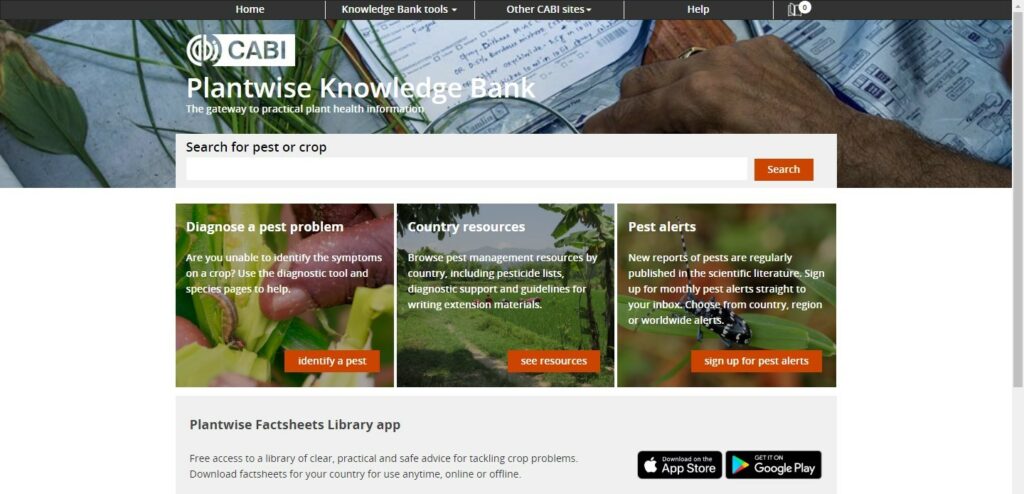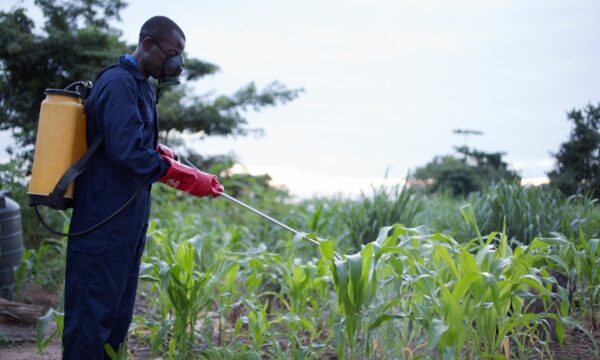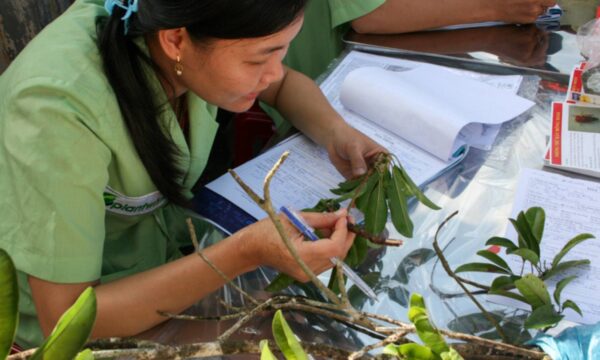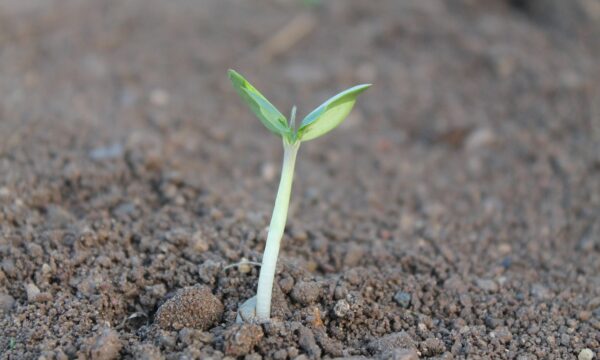The Plantwise Knowledge Bank is a free online resource that gathers plant health information from across the world. Over 15,000 pieces of content, which include, pest management decision guide’s (PMDG), factsheets for farmers (PFFF), species pages, photosheets, manuals and video factsheets in over 100 languages.

It also provides the user with really useful tools including the diagnostic tool, country resources, pest alerts, horizon tool, interactive maps and booklet builder.
It’s modern and dynamic design makes it easy to use. The site is also mobile responsive which enables our smartphone users in Plantwise countries to access the site with ease.

The Plantwise knowledge bank links all actors in the plant health system – plant clinics, researchers, extension workers, farmers and government bodies – to the information they need for timely action against crop pests and diseases. It supports the Plantwise goal: lose less, feed more by collecting, analyzing and disseminating pest data in order to enable:
– Identification and management of plant pests
– Protection against pest and disease threats
– Secure storage and analysis of national plant pest data
Search content
The content can be searched using the search box that appears on the homepage. You can use the free text search to search for a pest problem or crop by common or scientific name. You can then filter by country, region, category or language. Additional search support can be found here, along with details on how to use the Boolean operators.
Diagnostic tool
The diagnostic tool allows you to diagnose a crop problem through the symptoms observed and the part of the plant affected. Results from the diagnostic search are given as a list of possible pests or diseases, each with an image, and a technical factsheet further describing the problem.
Country resources
The country resources give dynamic location specific information including crop variety list, guidelines, diagnostic field guides, pesticide red lists and country specific plant health websites. It will soon also contain links to country-specific factsheets. It allows users to get a range of information that refers specifically to their chosen country.
Pest alerts
Pest alerts deliver information about new pests straight to your inbox. You can sign up to receive email alerts containing recent literature reports for a specific country or region, or recent literature reports from around the globe.
Horizon Scanning Tool
The Horizon Scanning Tool, developed under CABI’s Action on Invasives programme, helps you identify and categorize species that might enter your country. Using data from CABI Compendia datasheets, the tool evaluates whether there is a potential threat of an invasive species, based on countries with similar climates, trade connections or major transport links to the source country.
Booklet builder
Some factsheets can be added to a booklet, using the booklet builder, and are denoted by 📖. Click on the open book symbol to add a factsheet to the booklet. The booklet builder helps you to build a PDF booklet containing factsheets of your choice. Further details can be found here.
Interactive Map
Mapping plant pests and diseases is critical to plant protection decision-making. The knowledge bank allows users to plot multiple species of crops and pests to track spread. With climate overlays, predictive scenarios can be added.

Further reading
Contact us via email to share links to factsheets or any queries: plantwise@cabi.org
Visit the The Plantwise Knowledge Bank
Related News & Blogs
How do pest risk registers address the spread of plant pests in Africa?
Pest risk registers can help to solve problems in agriculture, addressing the growing global threat of plant pests. Moreover, changing weather patterns, led by rising temperatures, are causing them to reproduce faster and expand into new regions. In ad…
10 July 2025




